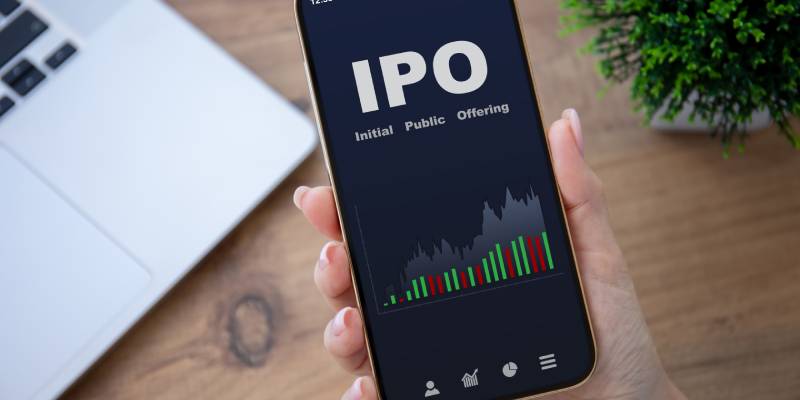As inflation and escalating prices of essential commodities such as energy and food remain a growing concern for the public and policy makers, the industry of trade finance is looking towards 2023 with optimism. Through the use of blockchain technology, the potential to reduce fraud and increase security within this critical sector is immense. By deploying blockchain capabilities thoughtfully, firms can experience cost savings and enhanced risk management due to increased transparency, traceability, and automated processes. With this powerful combination of advantages, blockchain can help market participants gain insight into cost savings options despite fluctuating prices.
Despite the recent spate of news about abandoned projects and migrations to alternative technologies, financial institutions and fintech companies continue to have faith that blockchain technology will be able to assist in the transformation of the paper-intensive business of trade finance that can boost efficiency, lower mistakes, and expedite international trading operations.
Despite the disappointments of 2020, where a few noteworthy projects were discontinued due to insufficient implementation and market acceptance, financial institutions are still diligently searching for ways to maximize blockchain technology and other advances in fintech to increase their value proposition for customers. TradeLens, We.trade, and Serai all went out of business in 2022 owing to a lack of scalability and commercial acceptance, which caused their supporters to be hesitant to continue funding them into an uncertain future. This was one of the more prominent pieces of bad news that occurred in 2022.
As the industry continues to expand, it is crucial for these organizations to keep abreast of advancements in the field and consider implementing specific science-backed solutions into their environment. Grasping the potentialities of blockchain, monetary technology, and related areas puts banks and fintech firms at the cutting edge of fiscal progress.
Despite the pervasive setbacks of 2020, financial firms remain optimistic in their reliance on blockchain and fintech innovations to improve trade finance. Commodities trading is a cornerstone of global commerce, and blockchain technology has been instrumental in reducing transaction costs while increasing trust and transparency across international finance networks. By leveraging the potential of blockchain and fintech advancements, these firms are striving to ensure that trade finance transactions remain reliable, secure, and cost-effective.
Harnessing Blockchain Technology for Trade Finance: A Game Changer
In 2016, Barclays PLC made a groundbreaking move in the trade finance industry when it issued the world’s first blockchain-based letter of credit. Fast-forward to today, and an expansive selection of entities—including banks, Financial Technology (fintech) firms, and other sector consortiums—have been testing the waters of blockchain technology to enhance standard procedure such as fraud prevention, international payments, asset syndication, Know Your Customer (KYC) utilities, and more.
Benefits like transaction times reduced from up to 20 days to merely four hours make blockchain technology a potential game changer in trade finance. Numerous platforms have sprung up to advance its use such as we.trade, Marco Polo Network, Contour, Komgo, Batavia, CordaKYC and several others. Collaboration across all stakeholders is necessary for the exploration and realization of the immense rewards that blockchain technology can bring to the trade finance realm.
Transforming Finance & Trade: Leveraging Blockchain Benefits
Blockchain technology is transforming the way finance and trade are conducted across the world. By providing a secure, inviolable, decentralized platform for transactions among multiple parties, blockchain offers not just greater efficiency, but also transparency and security. The global trade finance sector is estimated to be valued at $5.2 trillion, making it an ideal candidate for the adoption of blockchain technologies. Document exchanges can be digitized, leading to quicker processing times, cost savings, and improved fulfillment of all parties’ demands. Logistics and transportation organizations, as well as insurers, can also gain from implementing blockchain in their operations. Blockchain ensures immutability and accuracy of data stored on the network, granting businesses in the finance and trade field top-notch security and reliability.
Blockchain in Banking & Finance: Challenges Ahead
The past twelve months saw multiple attempts to integrate blockchain technology into banking and finance, yet these experiments all ultimately resulted in failure. Issues such as a lack of corporate adoption, low usage, and mismatched business models were identified as the primary challenges faced by bank-led projects like trade finance initiatives, insurance applications, banking programs, and shipping operations. Moving forward, those looking to adopt blockchain for the finance sector must be prepared for potential setbacks due to the need for cross-industry collaboration, user experience improvements, and scalability requirements that might arise.
Also Read: The Causes & Effects of Delisting of Stocks on Nasdaq
The Marco Polo Network provides an open-account trade finance platform that hosts a blockchain-based infrastructure and strong partnership with major financial institutions, such as Bank of America Corp., BNP Paribas SA, The Bank of New York Mellon Corp and Sumitomo Mitsui Banking Corporation (SMBC). This groundbreaking technology is transforming the pain points of corporate users, from simplifying processes to reducing risks and improving visibility whilst saving costs. Across the United States – and beyond – corporations are utilising this innovative solution to optimize their supply chain operations. As one of the leaders in digital trade finance, the Marco Polo Network is poised to remain a vital player in this field for years to come.
The Marco Polo Network, a blockchain consortium devoted to enhancing the trade finance industry, encountered insolvency in June of 2022. Established with the intention of aiding banks and firms in executing open-account trade more conveniently, the project comprised big financial entities like Deutsche Bank, HSBC, Santander, Société Générale, and UBS. Similarly, the we.trade consortium similarly succumbed to bankruptcy in June, 2022; they had been concentrating on small and medium businesses across Europe. In late November, there was an announcement of TradeLens – a supplier blockchain solution created through a partnership between Maersk and IBM – discontinuing their operations due to an inadequate comprehension of necessary commercial viability, as well as unfulfilled financial expectations. It seems that both Marco Polo Network and we.trade faced similar issues with their business models and the termination of TradeLens can be attributed to this.
Mitigating Risk and Investment: Assessing in Times of Crisis
In light of the global COVID-19 pandemic and the conflict in Ukraine, financial institutions have shifted their focus to operational and compliance tasks that demand immediate attention. Consequently, numerous blockchain-based projects have not produced the desired outcomes or failed to address existing market issues. To mitigate costly time and financial investments, many solution providers and members of blockchain consortia have implemented non-blockchain technologies. When assessing potential investments in innovative technology projects, it is therefore vital for banks to consider external events such as the pandemic and other geo-political risks.
MonetaGo provides a revolutionary method for detecting double financing with an information store manipulated by blockchain technology. This solution has already yielded triumphant results in India, yet the organization was unwilling to utilize the same on its global platform, as it could potentially retard the speed of transactions and lead to inflated expenses. This choice illustrates financial technology’s range and possible applications both within India and globally. By harnessing advanced innovations such as blockchain, the finance industry in India is capable of becoming more efficient and secure. MonetaGo is exhibiting the way forward for financial companies worldwide to access up-to-date fintech solutions.
Societe Generale, Citigroup, Credit Suisse, ABN AMRO and Commodity have recently celebrated an impressive success in their innovative use of blockchain technology to detect double financing. MonetaGo spearheaded this victory in India and now these companies have strong evidence that the implications of this triumph are far-reaching on a global scale.
Unlocking Blockchain’s Limitless Potential in Finance
The power of blockchain technology in finance is undeniable. It offers increased data privacy and security, making transactions virtually immutable while also reducing transaction costs and shortening processing times. Although blockchain has not fully revolutionized trade finance as initially expected, its potential remains high. As more organizations come to grips with blockchain’s capabilities and learn about the benefits it can bring, they will be more likely to embrace this cutting-edge technology. Proliferation of blockchain-based solutions across various industries such as finance, healthcare, and supply chain management will further unlock its limitless potential.
The bottom line: Unlocking the potential of Blockchain in Trade Finance
Blockchain technology is rapidly growing in prominence within the realm of trade finance. Companies like Tradeteq, Enigio, and Contour are trailblazing the way with their respective blockchain applications. However, adoption of said technologies has been rather slow due to inertia, the cost of change, and organizational transformation cycles. The ultimate objective is full digitization of trade finance, which will be achieved through incremental success over time rather than an abrupt revolution.
Trade finance advice provides regular updates on articles related to trade finance organizations. For more articles, please visit our website.



